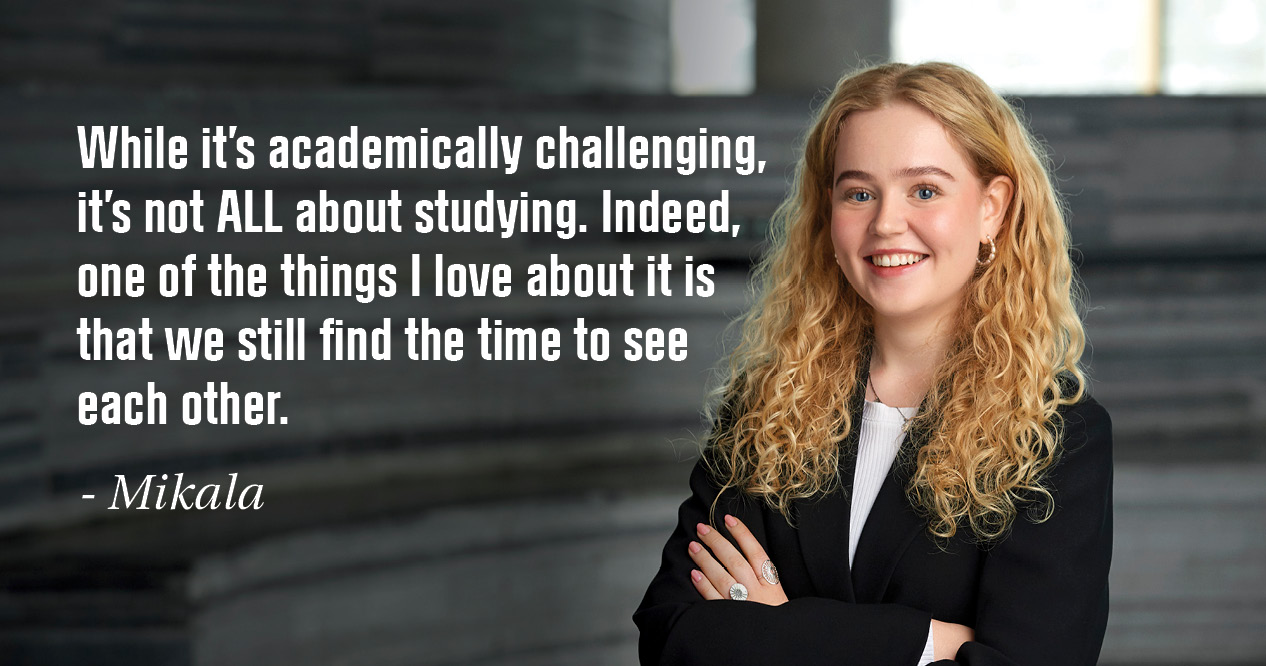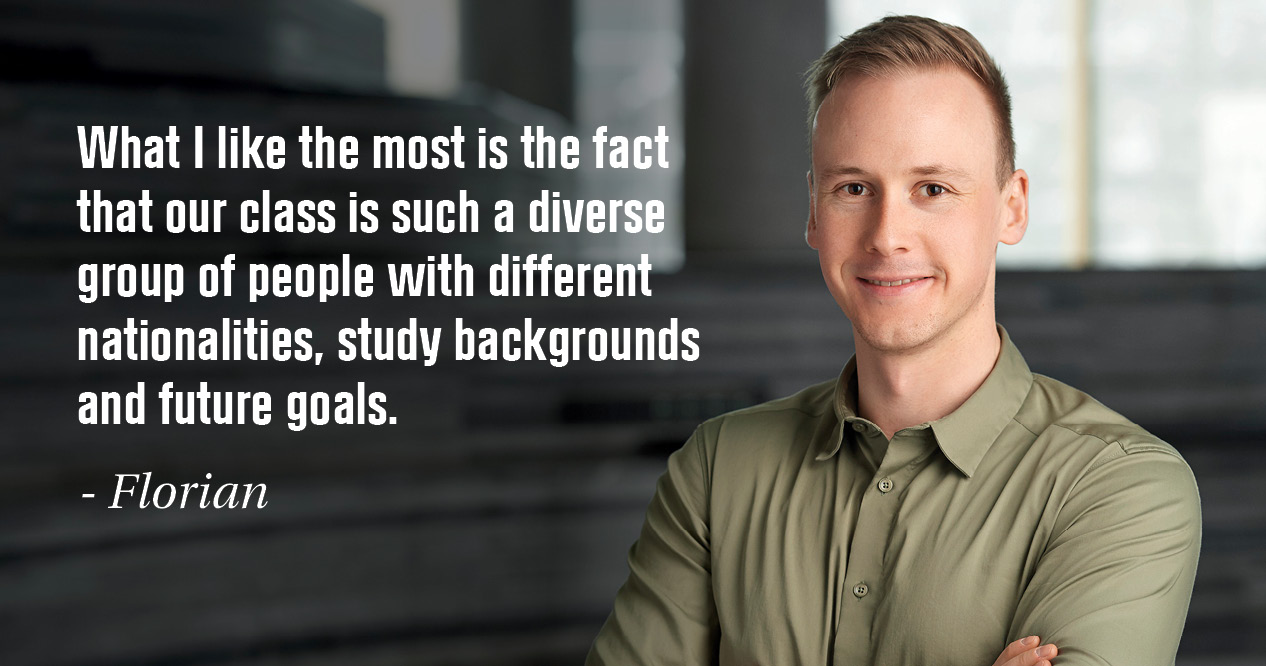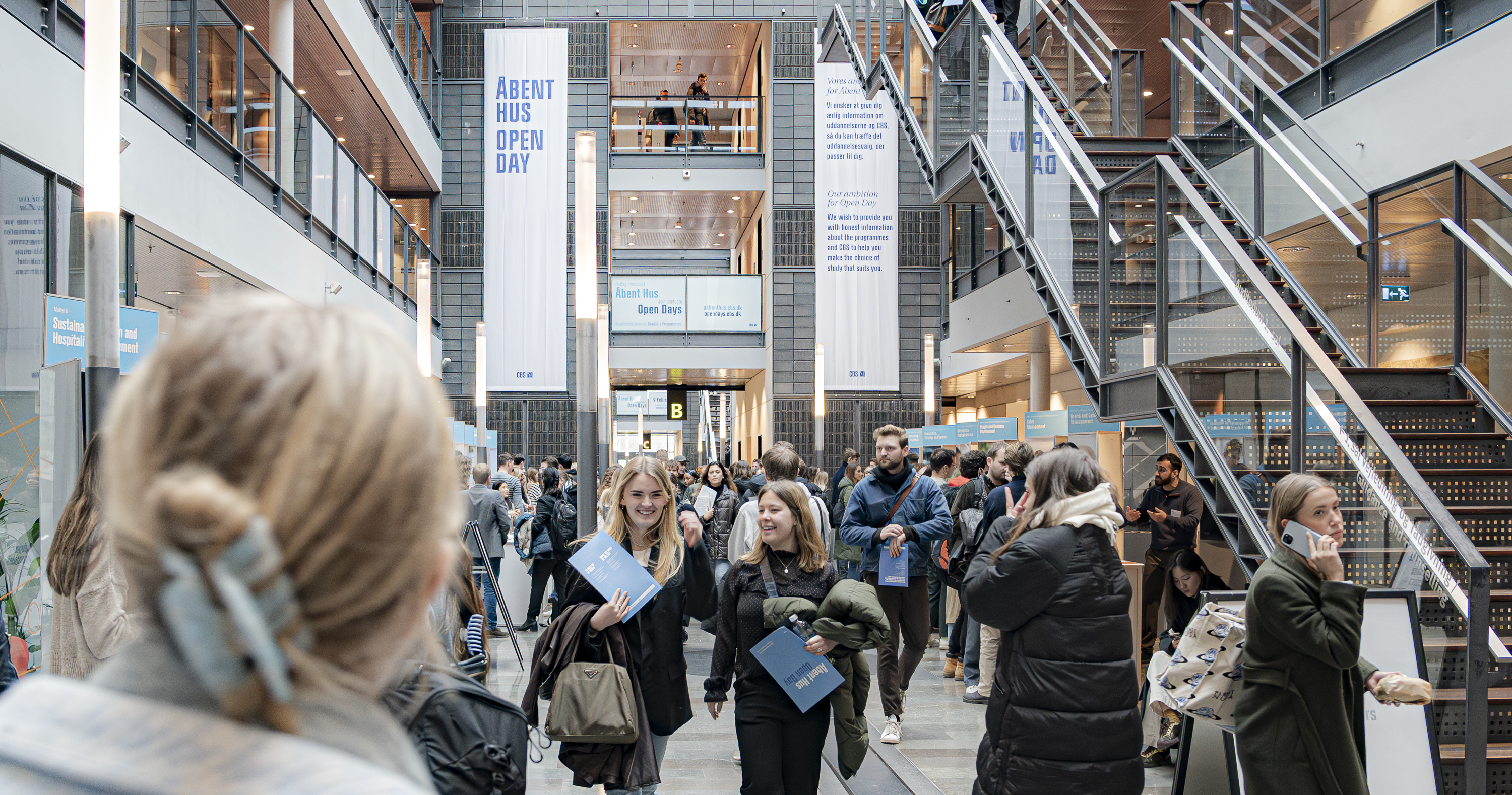MSc in Economics and Finance - Advanced Economics and Finance (cand.oecon)
About the programme
The MSc in Advanced Economics and Finance accommodates the need for economists with strong quantitative competencies. The programme is a thorough preparation for a variety of careers. Graduates are working in the financial sector, consulting firms or joined a PhD programme in economics or finance. The programme offers you the opportunity to develop your understanding of finance, economics, and quantitative methods at a very high level
While the first year of the programme is balanced between finance and economic courses, you can choose to specialise in further areas of economics and/or finance in your second year. You are taught to apply and use various well-known models and methods, but also to understand their technical foundations. This deep understanding of economics and finance allows you to adapt the models to new market conditions
Corporate finance, financial markets and corporate governance
In the study of corporate finance, you will investigate the incentives that are fundamental to understanding the different forms of capital structure and payout policies. In addition, this programme discusses the arguments underlying different forms of financing and management compensation.
You will be introduced to advanced topics within the area of financial markets. Areas to be covered include, but are not limited to, an individual’s choice of consumption and portfolio selection, and comprehensive pricing models. These models will be further developed into dynamic multi-period models, which are used in the most quantitative financial institutions.
The ability to create mathematical pricing models will be essential as you progress into more advanced topics, for example, derivatives and credit risk.
You will also learn how to deal with and/or prevent principal-agent problems, such as conflicts in owner-manager relations and the use of appropriate incentive schemes. Through game theory, advanced multi-period and multiple-agent models, you will develop a quantitative approach to solving problems of corporate policy. For instance, when writing contracts, you will deal with asymmetric information, incentive schemes and/or risk sharing in order to ascertain how these agency issues relate to particular governance systems in a corporation.
Economics and econometrics
You will analyse the behavior of economic agents, how they interact in markets and how they are regulated.
Moreover, this programme focuses on the study of macroeconomics, where, for instance, you will be able to explain and derive models of economic growth and business cycles. You will also be able to analyse the impact of fiscal and monetary policies as well as the role of government regulation and institutions.
Using econometric methods, you will be able to test theoretical predictions using economic and financial data. You will learn to select the appropriate data, models, and how to evaluate different econometric models.

Customise your programme
During the programme, you have various opportunities to create your own academic profile.
Electives
On the 3rd semester, you can choose to study courses of your specific interest, but at least 15 ECTS out of a total of 30 ETCS of electives, must be a progression of the mandatory courses. CBS offers a large number of electives within a wide range of topics. You can also choose to take electives at other Danish universities. The electives you choose have to be relevant for your programme.
See the current selection of CBS electives on Single courses and electives - Master
Exchange
Many students choose to go on exchange on their 3rd semester; usually at one of CBS’ more than 300 partner universities. When you go on exchange through CBS, you do not have to pay for the teaching at the foreign university (with a few exceptions), and you can bring your SU (student grant).
Find a list of all CBS partner universities here
Master's thesis
Your 2nd year is completed with a master's thesis. You choose the topic you want to write about, which allows you to focus on a specific topic of your interest. Typically, you write your master's thesis with a fellow student.
What to consider
High academic level
The academic level of the programme and of your fellow students is high. This makes the programme more difficult than most other programmes, and provides you with a challenging environment. However, this environment is also what prepares students for the challenges they will meet in their future career.
The curriculum consists of a large selection of research articles. Many of which are demanding to read because of the difficult subject matter and the high level of academic language used.
Online math camp
Before starting the programme, you are offered an online math camp for self-study to help you acguire the core math skills required to be successful in the programme.
Understanding and discussing theories and models
While the programme is not a math programme as such, you will be required to have a good command of math in order to perform derivations and other complex calculations, as well as a good understanding of econometrics and general statistics. However, the main focus of the programme is to understand and discuss the theories and models behind the calculations. As such, the programme can roughly be seen as 80% theory comprehension and discussion, and 20% calculations and applications.
Interest in quantitative economics and financial theory
In order to not only do well, but to thrive in this programme, you should have a strong interest and particular skills in analytical and quantitative economics and financial theory and its applications. You should also be willing to put in the extra hours that the programme demands.
You will learn to work independently with economic and financial problems and, thus, obtain qualifications to work as a key analyst in financial institutions and consultancies as well as the business community in general, wherever strong quantitative financial and economic skills are needed.
High workload and learning output
The programme is highly selective and only enrolls a limited number of students per year. Hence, a higher degree of attention will be given to each student.
By studying research papers, learning to conduct your own research, and having high-level interactions with professors and fellow students, you will experience a high workload, steep learning curve, high learning output, and elevated expectations concerning your own participation. As some of the courses are mandatory for students in the PhD programmes in Economics and Finance, the presence of PhD students adds further value to this unique learning environment.
Studying in English
If you do not have a bachelor’s degree taught in English, we recommend that you read more about what to consider before applying for an English taught programme.
Study environment
Students in this programme are genuinely interested in economics and finance. With only a limited number of students enrolled each year, the time with professors is much higher than normal, and many of the students develop strong working relationships with their professors.
The students in each class know each other very well and this creates a good environment for working in groups and exchanging knowledge both inside and outside the classroom. At times, it can be competitive, but the general environment is that of sincere cooperation.
As the programme has a high workload, this means you will benefit from frequent interaction with both professors and fellow students.
International study environment
International students account for approximately 80% of the students in this programme, and even though it is a small class, it is not uncommon to have 8-10 different nationalities represented. This creates a stimulating international atmosphere, and English is the language spoken at all times - even by the Danes.
Student life at CBS
Studying at CBS is much more than just preparing for and going to classes.
At CBS, there are more than 20,000 students with different backgrounds and nationalities. Teamwork is an essential part of studying at CBS both in classes and in extracurricular activities.
With more than 100 student organisations, you also have plenty of opportunities to engage and connect with students across programmes and classes.
Learn more about the vibrant student life at CBS, the student organisations, and the international environment on Student life
For internationals
If you are an international student, we have gathered a lot of information about what it is like to be an international student at CBS and how you can prepare for life in Denmark.
Read more on For internationals
Teaching and exams
Teaching
The combination of a small number of highly talented students and professors, who are passionate and highly recognised within their academic fields, creates a unique learning environment. Students are expected to be prepared and participate in class as the attitude and contribution of the students is key to a good learning environment and high learning output.
The teaching style is interactive with discussions, exercises, student presentations and assignments. This approach allows students to be engaged during class and provides a deeper understanding of complex theories and the relevant applications to various cases.
Read more about Teaching and working methods on Student life
Exams
The programme has a variety of exam types. Approximately half of the exams will have an oral component. This is to ensure that you are able to explain and discuss the relevance, applicability, and problems of the theories and research that you are studying.
Read more about Exams and exams types on Student life
Time consumption
You should know that it is demanding to study in a graduate programme, and both the curriculum and workload is significantly higher than at bachelor level.
If you are studying on a full-time graduate programme, you should expect spending approximately 37 hours on average on your studies each week. The workload will vary during the year.
The time leading up to assignment submissions and exams can be hectic, and you can easily work more than 40 hours a week in this period. Preparing for oral exams can be especially time consuming, because you have to be able to explain and discuss the covered concepts and theories and learn things by heart.
Read more about Time consumption on Student Life
Student job
The complexity of the curriculum and the high workload can make it difficult for some students to find the time for a student job. If you do, prioritisation and time management is essential, and most students work a maximum of 15 hours a week in order to have sufficient time for their studies.
Studying in Denmark - for internationals
If this is your first time studying in Denmark, you may find teaching and exam formats, the grading scale and the academic calendar very different from what you are used to.
Read about everything you need to know as an international student studying at CBS on For internationals > Academic information
Career
What gets you the job?
The programme enables you to approach problems with a thorough theoretical understanding coupled with the ability to apply quantitative tools for comprehensive analysis. The combination of strong analytical skills and deep theoretical insights is the core of your competencies when you enter the job market, and will facilitate solving more complex and demanding problems than what is normal at a graduate level.
Career opportunities
The programme has been created to accommodate the need for economists with strong quantitative competencies at banks, mortgage credit institutions, pension funds, insurance companies, investment and central banks and major consulting companies. These are also typically the areas in which our graduates find employment. Moreover, the strong theoretical focus of the programme provides excellent preparation for a future PhD study.
You will learn to work independently with economic and financial problems, and thus obtain qualifications to work as a key analyst in financial institutions and consultancies as well the business community in general wherever strong, quantitative financial and economic skills are needed. The programme also makes you a strong candidate for working in both research and in development, such as departments that develop new products in financial institutions, e.g. structured products and derivatives for investment banks, but also empirical investigation of investment opportunities.
Competence profile
In the competence profile you can read more about the purpose of the programme and the competencies you achieve in the programme:
![]() Competence profile for MSc in Economics and Finance - Advanced Economics and Finance
Competence profile for MSc in Economics and Finance - Advanced Economics and Finance
Course overview
| 1st semester | 2nd semester | 3rd semester | 4th semester |
| Contract, Agency, and Game Theory (7.5 ECTS) | Advanced Industrial Organization (7.5 ECTS) |
Electives or Exchange (30 ECTS)
|
|
| Asset Pricing (7.5 ECTS) | Derivatives and Risk Management (7.5 ECTS) | ||
| Corporate Finance (7.5 ECTS) | Financial Econometrics (7.5 ECTS) | ||
| Econometrics (7.5 ECTS) | Macroeconomics - The Global Economy (7.5 ECTS) |
You can read more about the programme, academic content and exams in the programme regulations for MSc in Advanced Economics and Finance (cand. oecon.)


